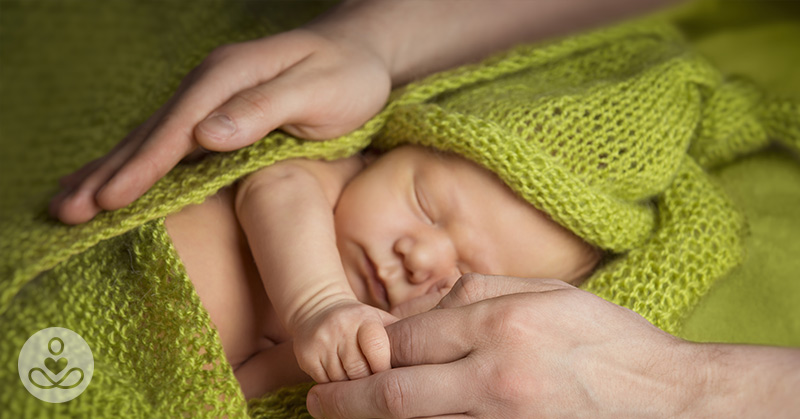The term ‘postpartum’ doesn’t always spark feelings of merriment or good tidings, in fact, it sounds downright depressing which is how many women feel soon after childbirth.
The lack of support for new parents is a sad situation. Most employers are not required to provide paid parental leave, and the federal Family and Medical Leave Act legislation only guarantee that you will be able to return to work after 12 weeks off. Without pay. [1]
On the other hand, we have a booming baby shower industry, the Baby Care Products Market expected to reach US$ 109.13Bn by the end of 2026, which is more focused on promoting wanton consumerism than offering any real help.
Here is an idea. What happens if we redirected all of the time, all of the money, and all of the energy for baby showers, and put them towards helping new parents when they need it most: during the emotional and physical recovery that comes during the first six weeks after giving birth? Could that help with some of the potential negative postpartum aspects, like depression? First a little about that.
What is postpartum depression?
Postpartum depression, also known as postnatal depression or the baby blues, is a type of mood disorder associated with childbirth, which may be characterized by crying episodes, low energy, irritability, extreme sadness or anxiety, and changes in sleeping or eating patterns. [2]
Symptoms of postpartum depression typically show up from one week to any time in the first year following childbirth and may include, but are not limited to:
Emotional symptoms
- Feeling inadequate in taking care of the baby
- Trouble bonding with the baby
- Persistent sadness, anxiousness or “empty” mood
- Frustration, irritability, restlessness, anger
- Guilt, shame, worthlessness, and low self-esteem
- Numbness, emptiness, and inability to be comforted
- Feelings of hopelessness or helplessness
Behavioral symptoms
- Fatigue decreased energy and motivation
- Lack of interest or pleasure in usual activities
- Low or no energy and libido
- Changes in sleeping patterns and appetite
- Social withdrawal and poor self-care
- Insomnia or excessive sleep
Cognitive symptoms
- Diminished ability to make decisions and think clearly
- Poor memory and lack of concentration
- Fear of the baby or about your ability to care for the baby
- Worry about harming self, baby, or partner
Causes of postpartum depression
The causes of postpartum depression are not well defined as genetics, hormonal changes, and major life events, such as childbirth, have been hypothesized as potential causes. The most likely causes, however, are the profound lifestyle changes that are brought about by caring for a newborn infant.
These mood changes are believed to be a natural effect of the hormone shifts that happen with pregnancy and childbirth. During pregnancy, a woman’s estrogen and progesterone levels increase and then drop suddenly after childbirth. This can affect mood but these hormones usually return to their pre-pregnancy levels within a week or so. [3]
Also, many mothers are unable to get the rest they need to fully recover from giving birth. Constant sleep deprivation can lead to physical discomfort and exhaustion, which can contribute to the symptoms of postpartum depression. [4] New evidence is even saying that postpartum depression can affect fathers as well.[7]
Depression of any kind is no picnic, which is why focusing on the parent’s mental health postpartum could go a long way. There is a lot we can do for ourselves, but there is also a lot that others can do for us. Maybe a postpartum party is in order?
Focusing on moms when they need it most
In a post on Scary Mommy by Wendy Wisner where she spoke about her time after childbirth, she said:
“My girlfriend threw me a baby shower, which was awesome, and I am forever indebted to her for that. But that, too, focused mostly on the birth, the baby, and making sure I’d have all the material possessions I’d need to be a mom. It didn’t touch upon what would prove to be the ultimate shit-show of this whole thing: postpartum.” [5]
BUST Magazine writer Marisa Mendez Marthaller suggests skipping the baby shower and throwing a “postpartum party” for new moms instead. She provided the following outline on how to throw a postpartum party that gives a new parent exactly what they need.
- Make a guest list of the people you think can help you after giving birth and invite them to the postpartum party. Explain that this party is actually six weeks long and includes super cool games like diaper changing and babysitting.
- Organize a food schedule so friends and relatives can take turns to come cook meals or drop off care packages. Even long-distance friends and family can still pitch in.
- Set up a house-cleaning timetable for friends and family to donate their time and effort to help you keep the home livable. Tasks may include mopping floors and doing dishes.
- Ask for some mother-sitting time so you can get enough rest. This could involve something as simple as having someone who can hold a baby while you go to the bathroom, shower, nap, or who will even just listen as you talk.
- Establish visiting hours so you don’t get overwhelmed by having too many guests at once.
Postpartum depression is a series issue, and it by no means can surely be avoided with something like this. However, it certainly can’t hurt. Having loving support from friends and family that goes beyond receiving cute new onesies, pacifiers, and rattles.
Disclaimer: This information is not intended to be a substitute for professional medical advice, diagnosis or treatment and is for information only. Always seek the advice of your physician or other qualified health provider with any questions about your medical condition and/or current medication. Do not disregard professional medical advice or delay seeking advice or treatment because of something you have read here.
Sources
- BUST Magazine: https://bust.com/living/194743-postpartum-party.html
- Wikipedia: https://en.wikipedia.org/wiki/Postpartum_depression
- Kids Health: https://kidshealth.org/en/parents/ppd.html
- National Institute of Mental Health: https://www.nimh.nih.gov/health/publications/postpartum-depression-facts/index.shtml
- Scary Mommy: https://www.scarymommy.com/ditch-babies-showers-postpartum-party/
- PR News Wire: https://www.prnewswire.com/news-releases/baby-care-products-market-to-touch-us-10913bn-by-2026-end-rise-in-spending-on-babies-health-and-wellness-by-parents-support-the-bold-strides-680901271.html
- https://www.sciencedaily.com/releases/2019/03/190307091448.htm

